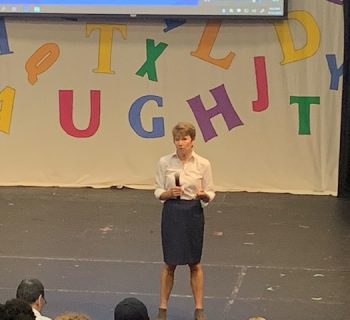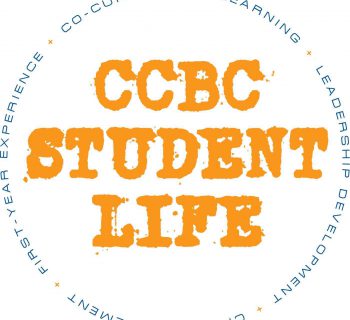Alyssa Gladden
*Articles reflect the views of the author and or those quoted and do not necessarily represent the views of CCBC or The CCBC Connection.
Imagine this; you’re an average college student. You have to work a part time job in order to afford an education. College and university tuition rates are growing every year and you're just
trying to keep up.
After working a long shift on top of a full day of classes your feet hurt, your brain feels fried, and you're mentally exhausted. Luckily you finally have enough money to pay off your tuition for the semester just to go to class the following day to find out you have to pay even more money for a class-required textbook.
This is the reality for millions of college students across the nation. Many are struggling to afford the education they need in order be successful in life. As student debt rises so does their frustration. Students are starting to ask the question, “why aren’t textbooks included with classes anyways?”
They’re absolutely right. Colleges and universities should include textbooks with the class tuition and fees. It only makes sense to.
Tuition is already expensive enough. The average cost of tuition at a community college in the United States is reported at $4,864 a year. While a public four year institution averages at $9,970 a year.
These numbers may seem attainable but this is only the tuition. Students also have to pay fees and for transportation. Those attending four year schools may need to pay for room and board as well. All of these extra costs can bring their average total up to $50,000 a year. On top of all this colleges then ask for students to pay for multiple textbooks for their classes every semester.
Textbooks aren’t cheap either. One textbook can easily cost $300. Students taking multiple classes a semester spend an average of $1,300 a year on books alone, according to the "Community College Review."
These prices are just rising. According to the American Enterprise Institute, compared to three decades ago, tuition and fees have increased by 559 percent. Textbook prices are growing even faster. Reported to be 812 percent higher than they were in the previous decades. With the increased tuition why can’t colleges include required textbooks with the class fees students already have to pay? Where is all this money going?
“If I’m paying my school thousands and thousands of dollars, they should be able to at least give me a used textbook I need for my class,” Aisha Nelson, Morgan State University student said.
Students don’t have the option to just not buy them either. These textbooks are labeled “required” for a reason. Many professors center their lecture and overall course around these books. Some even use them for assigned readings which directly affects their scores, potentially dropping them a letter grade if not completed correctly. Those who can’t afford the book are disadvantaged from the very beginning of the class compared to their peers who are fortunate enough to afford the high price tag.
Most colleges offer book credits with their financial aid packages to help offset the costs of textbooks, but they can only take students so far. Book credits are additional aid given to students who qualify for them. The amount each student is given is calculated by estimating the cost of what the student should be spending on books. Yet many students still complain it’s not enough.
“Last semester I was given $500 in credits to spend on the books that I needed. I thought it would cover the cost completely but I still ended up owing $100,” Nelson said. “It’s just frustrating thinking you’ll be good and then all of a sudden you’re not.”
Even with having to pay out of pocket for the remaining balance those with book credits are still better off than some. There are students who don’t even qualify for book credits and have to pay the full amount all by themselves. Adding that to the additional fees and supplies not calculated with the reported cost of school, it is clear to see why so many are frustrated with this system.
With all the income colleges receive they should be able to afford to provide at least used books for their students. Universities and colleges across the nation are bringing in billions of dollars every year. Many also receive funding from the federal government. Even with the cost of running these schools, including all the variables, there still seems to be a substantial amount left over.
It would be more reasonable to create a lending book system similar to those used in high schools rather than offer book credits at all. Students should be given the required textbooks in class at the beginning of the semester and return them at the end. If there is any significant damage to the book or the book is missing entirely the student should then be responsible to
replace the book.
Another feasible option would be for schools to purchase the online access codes for their students. Not only would this be a more environmentally friendly option, access codes are also in general considerably cheaper. Averaging at about $100 a code many students prefer this over the traditional textbook.
Of course these solutions will cost schools money, but isn’t one of their favorite phrases “you have to spend money to make money”? If they’re expecting their students to pay these sizable charges in order to have a successful career then they should be willing to give a little bit of their profits back to the ones who gave it to them in the first place.
The bottom line is that no student should have their academic performance be in jeopardy because they can’t afford to buy a textbook on top of their already weighty expenses. Most of the colleges and universities have the available funds and they should use them to ensure every one of their students have the opportunity to be successful.















I agree, there have been too many times that I’ve had to come out of pocket to buy textbooks, and to make matters even worse I barely would use the book or have to refer to it, which in turn, made me lose money that I worked hard for and needed.
I agree with this article’s much. Textbooks already are so much more expensive then regular books. Also they are sometimes not even used in the class that forced you to pay for them. There are plenty of examples of textbooks I bought that we barely used for the duration of the class
I agree, textbooks should be included In tuition. Since textbooks are such a crucial part of learning information in college and the cost of college is so expensive this would only make sense. Many people cannot afford the price of these textbooks let alone school.
I don’t understand why textbooks are so insanely expensive to begin with. If some new discovery is made that means the original book is obsolete and has to be retyped and reprinted, fine. But is there some new way of doing algebra? Did they find out that 2+2 actually equals -7? Why is a math book (and this is just an example; there are plenty of others to choose from that I could ask the same questions about) $200+? Math is math; it hasn’t changed in 1,000 years. What could possibly justify a 3-figure price tag for a math book? Like I said, that same argument could be used for nearly every required textbook: Did they resurrect Shakespeare to ask him if the blue curtains were a metaphor for the melancholy the character was feeling, or was he just describing the room, as a good writer should (it’d be a pretty boring read if it was “A nondescript character was in a room. In the room, there was stuff”)? That could justify a hefty price tag for an English book, and would also bring an end to the debate as to whether the English teachers are right, or are insane, for thinking everything secretly means something else. Did the person writing the history book invent a time machine, go back and photograph the Jurassic period, and bring the pictures back to update the fossil records? Okay, THEN I could understand paying $300 for a history book. The reality, though, is that literally everything in any of those books can be found online, for free or a few dollars at most. WHY. ARE. COLLEGE. TEXTBOOKS. SO. EXPENSIVE? It makes me think of diamonds; they’re NOT rare, there’s nothing overly-special or unique about them, but diamond stores say they’re expensive and we have to pay thousands for them, so we unquestioningly do. If students across the nation would band together (even if it was only an overwhelming majority; doesn’t have to be every single one) and outright refuse to buy textbooks for a few semesters, things would change real quick. But, in typical American style, we all complain about it, but do nothing about it.
This was an excellent article about the relathio ship between students ans textbooks. Most students i talk to get so frustrated they have to buy textbooks ontop of paying thousands for their education. There is always a new edition, or a webcode you need that can easily run $100-$300. It is excpecially frustratign when you hardly use that very expensive book throughpout your class. There has to be a way for students to not put their educational future in danger becasue they cant afford the $200 textbook. I liked the idea about using some of the very large budgets to buy used books for the students.
This was an excellent article about the relationship between students and textbooks. Most students I talk to get so frustrated they have to buy textbooks ontop of paying thousands for their education. There is always a new edition or a web code you need that can easily run $100-$300. It is especially frustrating when you hardly use that very expensive book throughout your class. There has to be a way for students to not put their educational future in danger because they can’t afford the $200 textbook. I liked the idea of using some of the very large budgets to buy used books for the students.
I agree with this article textbooks are very expensive & sometimes you are barely using them for the class , maybe a couple assignments.Its frustrating to pay for tuition as well as textbooks.Its like a financial burden & its not something to look forward to while paying for your education,it makes less people want to go to college actually to me.
I love this article, I feel so strongly about this topic. I am lucky (and unlucky at the same time) enough to be under 25 and have a parent that makes so little money that I get financial aid to pay for my books. Not everyone has that luxury to get a full ride, and its frustrating. You’re told at such a young age how important a degree is, and how if you don’t go to college, you won’t succeed in life, yet college is so expensive you can’t afford to go. People don’t always have that extra money to spend on books that are way overpriced. My sister is in the dental program, and financial aid does not cover her books. We are forking out thousands for her to get her certificate, it is kind of crazy. I really do think books should always be covered, especially considering the price of said books.